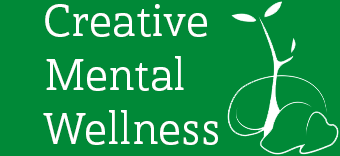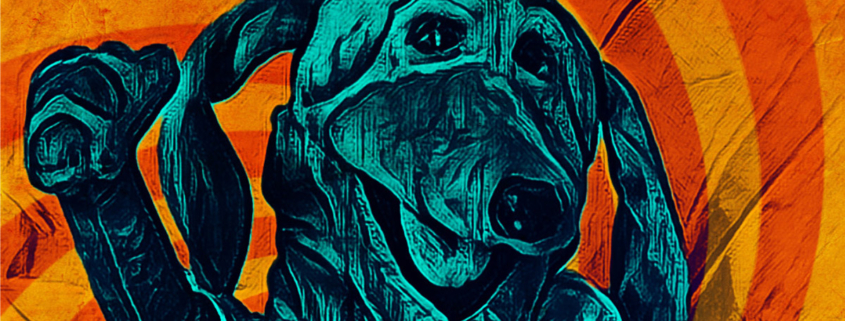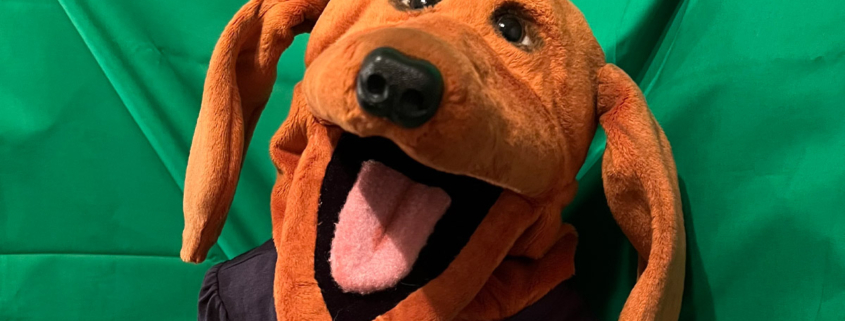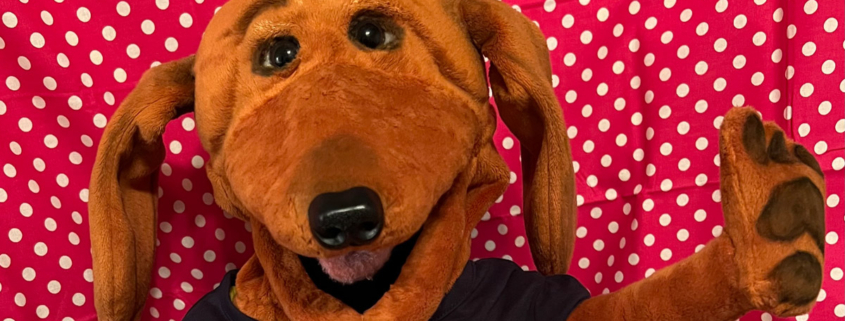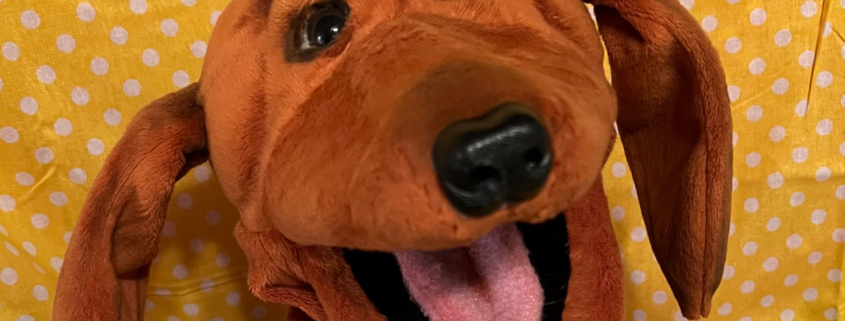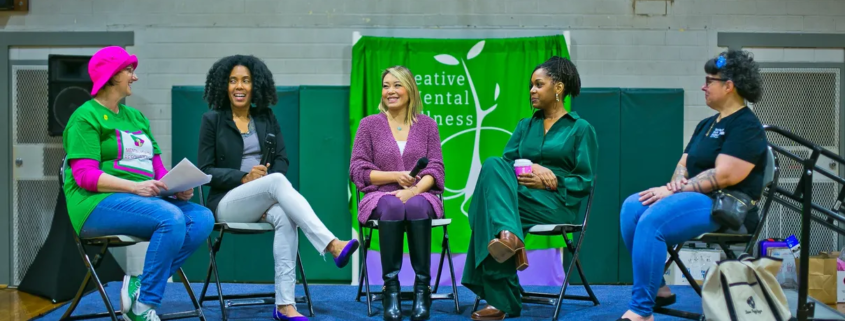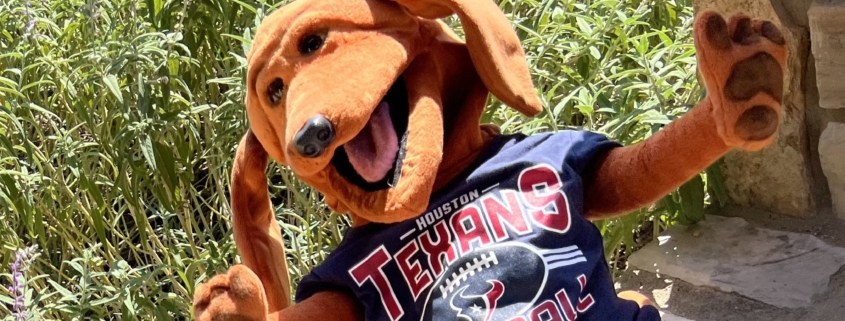Posts
January 2025 Newsletter
/0 Comments/in Newsletter/by CMWadminHappy New Year!
January
January is Mental Wellness Month
January 18 we are celebrating Mental Health Resources Day in Houston, TX!
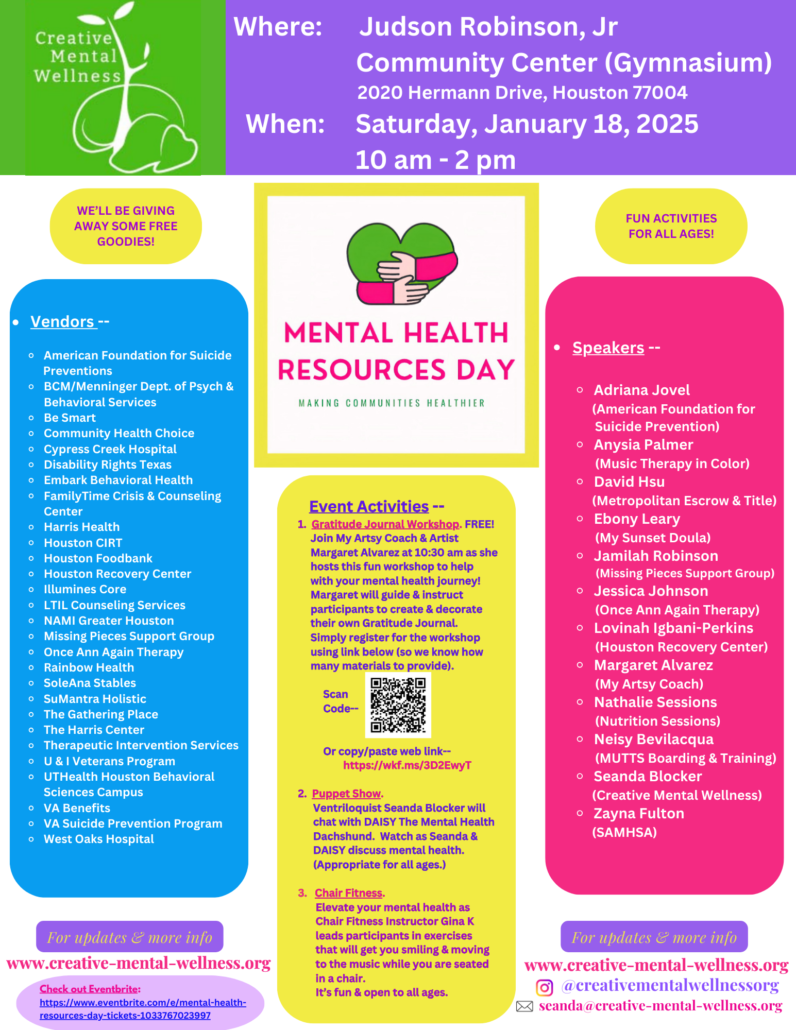
Mental Health Resources Day
With Mental Health Resources Day, we aim to educate the community of local, state, and national resources available for mental health support, from local psychiatrists to NAMI. With speakers from SAMHSA, the Houston Recovery Center, and so many other local services, this event is sure to be both fun and informative!
Volunteer Spotlight
This month we are spotlighting Jimi! Jimi has become an Emerging Scholar through the Emerging Scholars Fellowship Program with Active Minds, and we are lucky enough to have him as a volunteer! He is a valued team member and we are so thankful that he helps with our Youtube channel. Thank you, Jimi!
DAISY’s Book Club
Reading has been shown to improve empathy, and it can help us use our phones less, so reading is a great hobby to pick up! This month, DAISY recommends The Anxious Generation by Johnathon Haidt. This book is really informative on the mental health issues that kids, teens and young adults are now facing with the onslaught of technology, social media and ever-changing social pressures.
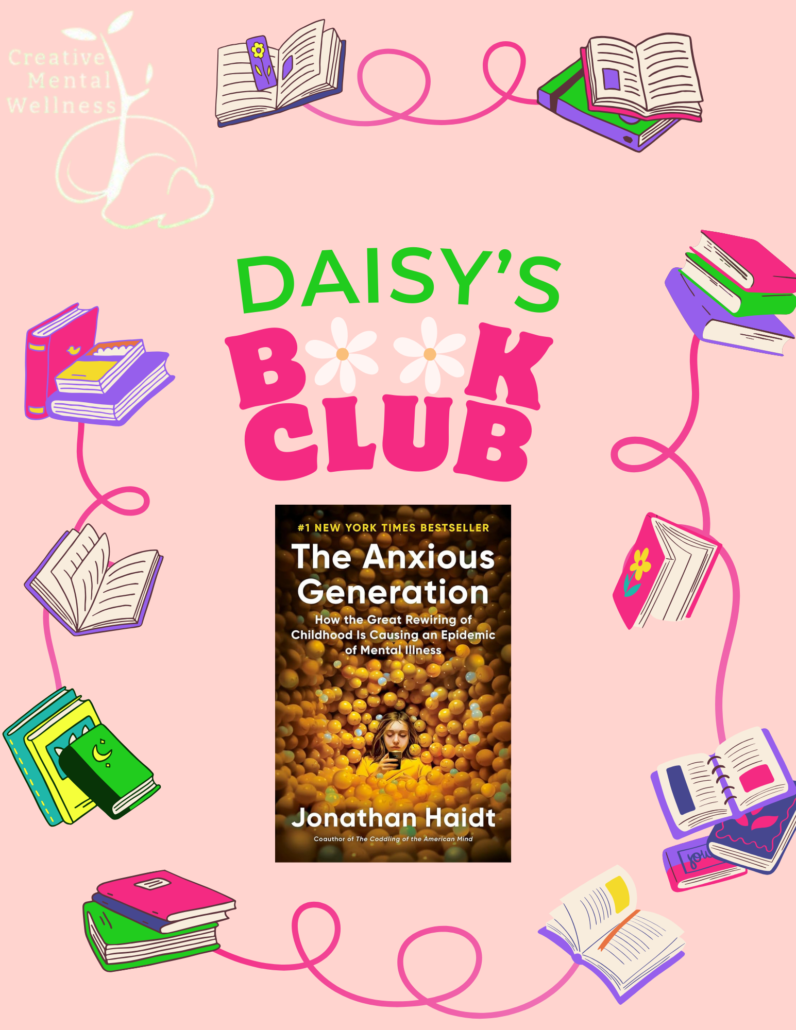
Thank you for joining us on this mental health journey! Follow us on Instagram, Facebook or LinkedIn to stay up to date.
Your friend,

December 2024 Newsletter
/0 Comments/in Blog/by CMWadminDecember 5 is Light Up a Life Day
Reduce Stress This Holiday Season
The holidays are known to be stressful, and can be even harder if you have lost a loved one you used to spend the holidays with. To help reduce stress around the coming holidays, there are a number of techniques you could try, like yoga and meditation, gratitude practices, baking, and spending time in good company. It can be difficult with the pressures to decorate, buy gifts, or host loved ones, but this season is also a good opportunity to appreciate what you have and those you love. If you choose to give gifts, try doing a gratitude practice beforehand – everyone could even write down what they are grateful for, if you don’t want to verbally say what you’re grateful for. Fostering a sense of gratitude can have positive effects on mental wellness and fortitude, thereby reducing stress and improving mood.
Nami also has great resources on managing your mental health during the holidays:
Surviving Painful Holiday Emotions
Avoiding Holiday Stressors
Mindfulness and Meditations for the Holiday Blues
DAISY’s Book Club
DAISY found Bowling Alone: The Collapse and Revival of American Community by Robert D. Putnam an interesting and informative read. It is, as the title suggest, about the lack of community in America, and some of the reasons Americans have shifted away from community, including politics, TV, and a decrease in church-goers. Many people may feel like social media and cell phones are the main cause, but the author says, “voting, giving, trusting, meeting, visiting, and so on had all begun to decline while Bill Gates was still in grade school.”
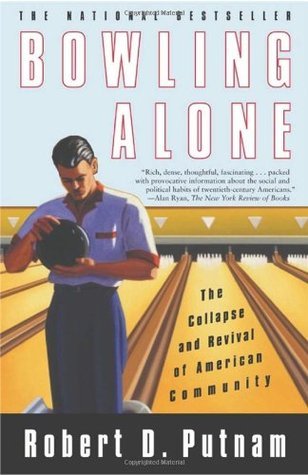
Updates in the Mental Health Sphere and DAISY’s World
Studies have shown that gratitude can reduce feelings of loneliness! If you are feeling lonely, try adopting a gratitude practice – whether you say, write or just think about what you are grateful for, it can help alleviate some of your loneliness.
Creative Mental Wellness has been accepted into the Kroger Community Rewards program! When you shop with your Kroger account, you can help support our mission!
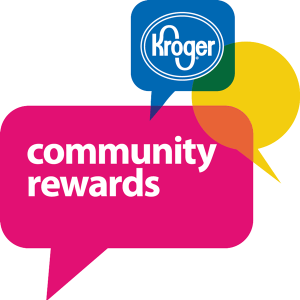
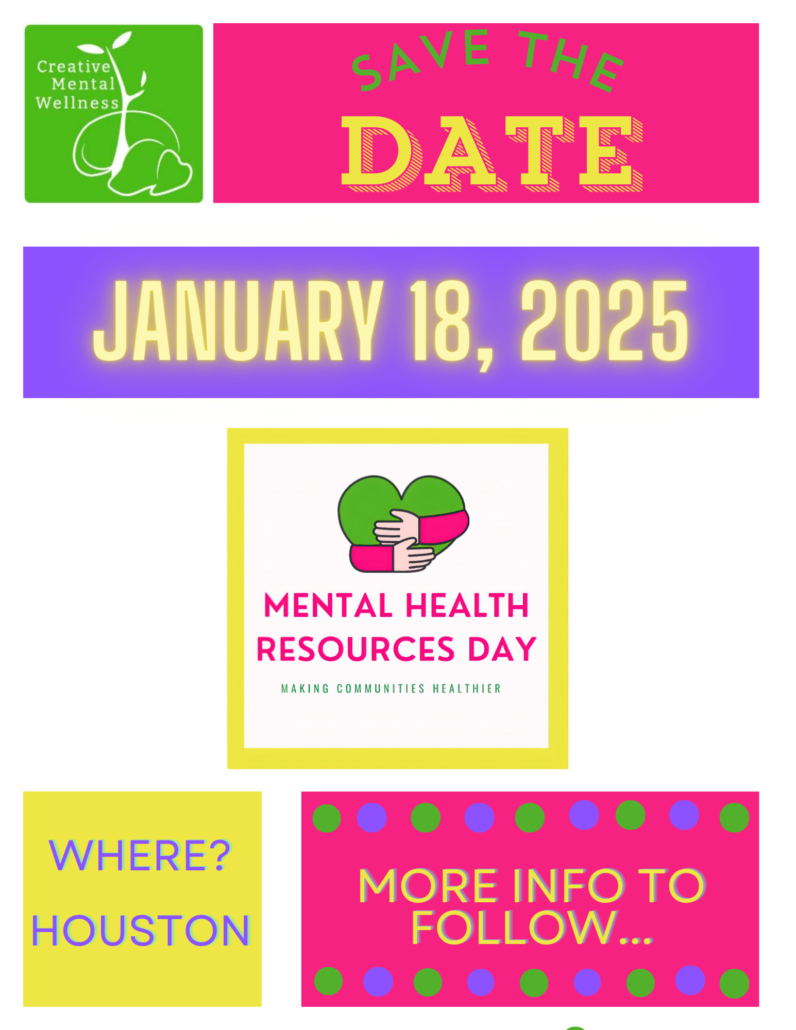
Thank you for joining us on this mental health journey! Follow us on Instagram, Facebook or LinkedIn to stay up to date.
Your friend,

May 2024 Newsletter
/0 Comments/in Newsletter/by CMWadminMay
May is Mental Health Awareness Month!
This month especially, take care to inform yourself and others about mental health. You can keep an eye out for local events sponsored by mental health non-profits and other organizations like the National Alliance on Mental Illness (NAMI). NAMI holds walks in major metro areas, a convention, and great social media campaigns that you can participate in from your living room! There are numerous companies and organizations working to provide helpful information this month – here are some that we think you should check out:
National Alliance on Mental Illness
Substance Abuse and Mental Health Services Administration
National Institute of Mental Health
Mental Health America
American Psychiatric Association
National Council for Mental Wellbeing
Giving a Warm Welcome to Summer
Physical activity tips to beat the heat
As the semester draws to a close and summer vacation approaches, it is becoming increasingly hotter across the United States. Because of the heat, it can be more uncomfortable and difficult to exercise, especially if you lack access to an indoor gym. There are a myriad ways to beat the heat and keep your physical health in mind this summer though!
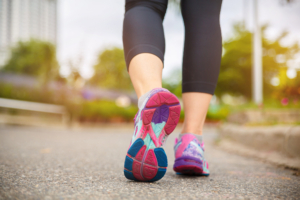
Hydration is of course the most important thing to keep in mind as you sweat or spend time in the sun. Make sure to drink plenty of water before, during, and after exercise and outdoor activities. It can also be beneficial to consume electrolyte-replenishing drinks and foods, like pickle juice and bananas. Even swimming uses your body’s water stores, so plan to be drinking a lot of water as you stay active this summer.
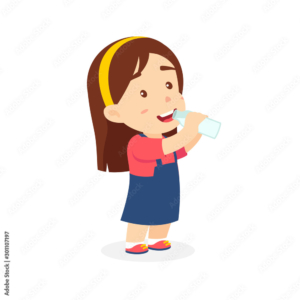
Timing your outdoor activities can help you avoid the hottest parts of the day. Early in the morning is typically the coolest part of the day, and also touts the lowest UV index, so you can worry less about getting sunburnt as well. There are many weather apps and websites that can show you the temperature and UV index by the hour, so you can plan out your day based on the given information; it may not be entirely accurate, but these weather apps give you the best chance for minimizing heat and UV exposure.
Indoor workouts are also a great option, even if you do not have access to equipment. There are so many great Youtube videos for workouts tailored to a variety of different needs, whether they are no equipment, limited mobility, or “beginner friendly.” Pilates and yoga can be great starting points. If a certain video or “influencer” doesn’t fit your physical or mental needs, look for some that do! It is important to find exercises that motivate you, make you feel good, and are good for your wellbeing.
It is great to keep your body moving and to keep physical exercise in your life when possible, but as the seasons change, our bodies and mindsets change. It is okay to change your workout routine, and we recommend keeping hydration, timing, and alternative exercises in mind in the coming months.
DAISY’s Random Acts of Kindness
These are some ways DAISY is spreading kindness this month
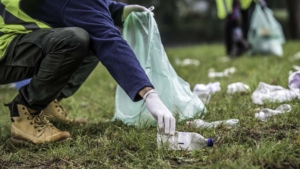
- Helping a friend clean. DAISY helped her friend do some Spring cleaning! Cleaning with a friend is not only quicker, but more fun!
- Picking up litter. When DAISY goes for a walk and sees a piece of trash, she safely disposes of it! She put in extra effort this month to pick up more litter when she is out of the house. Remember: safety first. Wear gloves when picking up litter, and be extra careful with any glass.
- Donating the clothes she no longer wears. DAISY’s spring cleaning made her realize she has some clothes that no longer fit her or her her style. She has no ideas to “upcycle” or alter these items to help fit her life currently, so she is going to donate them to a local secondhand shop.
The Random Acts of Kindness Foundation has some other great ideas, and they even have a calendar with a different act of kindness every day!
Thank you for joining us on this mental health journey! Follow us Instagram, Facebook or LinkedIn to stay up to date.
Your friend,

April 2024 Newsletter
/0 Comments/in Newsletter/by CMWadminApril
April is National Stress Awareness Month and National Minority Health Month
April 2nd is Autism Awareness Day
April 7th is World Health Day.
April 12th is the Day of (No) Silence.
Stress Survival Guide
How to cope with stress
April is appropriately deemed the National Stress Awareness Month… taxes, end of the semester approaching, allergies. We’re not going to tell you not to stress about these things -stress is a part of life and manageable stress can even be beneficial for your health. We are going to tell you some ways to help cope with and reduce the effects of your stress.
Physical health is a big part of managing stress, from exercise to nutrition and sleep. Physical activity is our number one recommendation for stress management! Especially if you can pair exercise with nature. Taking a walk around a park, roller skating at a skate park, hiking, and doing yoga in your backyard are all great examples of how to pair exercise with nature to help produce “happy hormones” and reduce the feelings of stress on your body. There are other ways to get moving though – dancing, cleaning, playing tag, and numerous other activities are great for your physical and mental wellbeing. Eating enough nutrient-rich foods is also important; without enough of the right nutrients, our bodies struggle to handle stress. Fiber has been shown to be incredibly important in maintaining gut health, which in turn helps take care of our brain’s health! Leafy greens, fruits and vegetables are great sources of fiber and should be incorporated into your diet when possible. Your diet is vital for your physical and mental health. Sleep is also very important, because our bodies use sleep to maintain our brains, immune systems, and memories. Getting enough sleep (typically 7-9 hours are recommended) and maintaining a consistent sleep schedule can be beneficial for your mental health and ability to manage stress. Your physical health is one of the most important factors in coping with stress.
DAISY’s Reading
The Cuckoo’s Egg: Tracking a Spy Through the Maze of Computer Espionage by Clifford Stoll
The Cuckoo’s Egg is about an astronomer (Cliff Stoll) working as a systems manager at Lawrence Berkley Lab who finds an unwelcome visitor on Lawrence’s computer systems. With some help from the CIA, FBI, and foreign intelligence agencies, he unveils the hacker and the people supporting them.
This book is a bit of a long read but it is quite a page-turner! DAISY wanted to keep reading to find out what Stoll and the hacker would do next. A really interesting read from a time before the internet was as accessible as it is now.
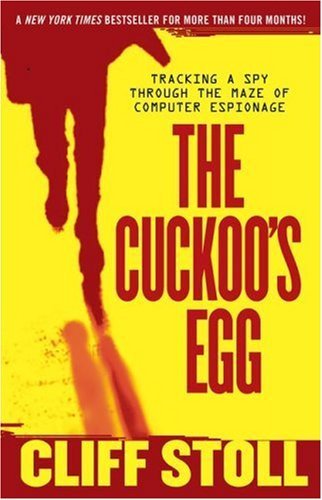
Thank you for joining us on this mental health journey! Follow us Instagram, Facebook or LinkedIn to stay up to date.
Your friend,

UPCOMING EVENTS
Latest Newsletter
 February 2026 NewsletterFebruary 2, 2026 - 10:01 am
February 2026 NewsletterFebruary 2, 2026 - 10:01 am January 2026 NewsletterJanuary 2, 2026 - 10:00 am
January 2026 NewsletterJanuary 2, 2026 - 10:00 am December 2025 NewsletterDecember 6, 2025 - 1:07 pm
December 2025 NewsletterDecember 6, 2025 - 1:07 pm
